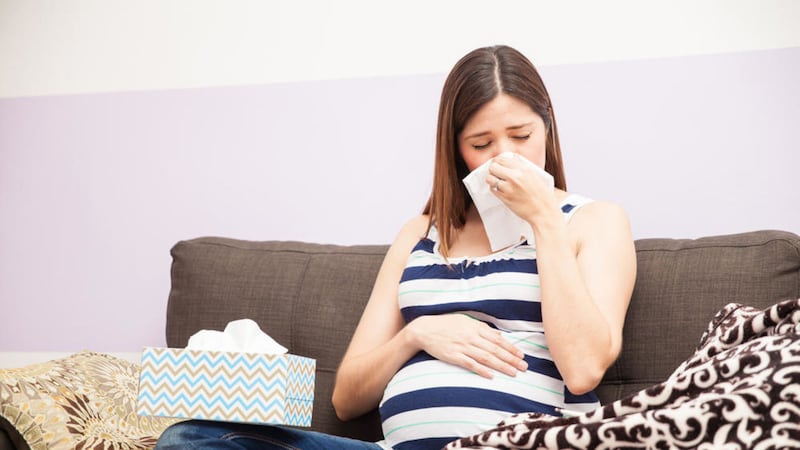FLU is a nasty illness which at the best of times can put us out of action for days.
However, for people with health conditions, plus pregnant women and those aged over 65, it can prove a lot more dangerous, with complications from influenza even proving fatal in some cases.
Thankfully we haven’t had a major flu outbreak here for several years, but the risk is that we become complacent and choose not to get vaccinated because we think that we’re unlikely to catch it.
Every case of flu impacts on the individual who has it– and those around them –and you never know when you might get it.
In the Public Health Agency (PHA) we oversee a programme of flu immunisation which has been developed to help protect those most at risk from the condition.
The vaccine is free and on offer to these groups because we want people to get it and reduce their chances of catching flu.
The formulation changes every year to reflect the strains of flu that are circulating in the community, so it’s important to get it annually, as last year’s jab will not offer protection for this year.
As with any immunisation programme, the vaccine has been tested and is safe. It doesn’t give you the flu or cold-like symptoms, or make you sick. It works with the body to build antibodies against the viruses.
One of the key groups who we want to get vaccinated is pregnant women, as flu can be dangerous for expectant mums and their babies. The vaccine won’t harm you or your baby. In fact, it is the best way to help protect you both from getting the flu.
Just over half of pregnant women got the flu vaccine last year, so I really urge anyone who is expecting, to make arrangements to get vaccinated without delay, even if you had the vaccine last year too.
There is also a comprehensive vaccination programme for children, and they don’t even have to get a jab. For pre-schoolers aged two and above, and kids at primary school, the flu vaccine is delivered through a painless spray up the nose. Young children are more susceptible to flu and its complications, but aside from reducing the likelihood of youngsters catching the condition, vaccination can also help reduce them spreading it to more vulnerable members of their family. Pre-schoolers can get the nasal spray at their doctor’s, while those in P1 to P7 are being offered it at school.
Of course, people who are deemed to be ‘at risk’, in other words those with long-term conditions such lung problems including asthma, a heart condition, diabetes, a weakened immune system, liver disease or kidney disease,should make sure they also get the vaccine.
Last year we saw a decrease in the number of people in this group getting vaccinated, so I urge anyone who hasa long-term condition to get the jab without delay. The same goes for people aged 65 and above, who should also get vaccinated through their GP’s surgery when invited.
There are a number of steps we can take over the winter period to look after ourselves, and central to this is getting the flu vaccination, as it can have such a major impact in helping to protect our health.
Prevention is always better than getting sick and having to seek medical help, and possibly ending up in hospital or worse.
It is essential that we don’t take our health for granted and assume that we won’t catch the flu because there hasn’t been a major outbreak recently. Flu can have a severe impact on our health, so if you’re eligible, get the vaccine – it’s free, safe and available to help you stay well this winter.
For all the information you need on the flu and the vaccination programme, visit the Public Health Agency’s website www.fluawareni.info








